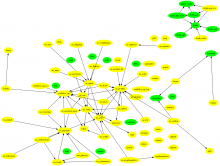Conclusion
My conclusion would be to make module.inc the key module for module and project dependency management.
Changes to install.php, system.module, update.php are relative easy to do afaik.
What i haven't covered is schema update dependencies.
Steps to take:
- make drush_mm more robust as a showcase
- patch module.inc with lessons learned from drush_mm
- provide the project provides files same like status_update
- with this into place drush (D7) could have lean and mean drush_pm and drush_mm modules

